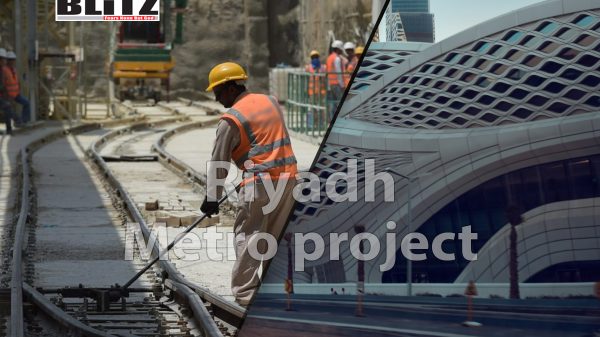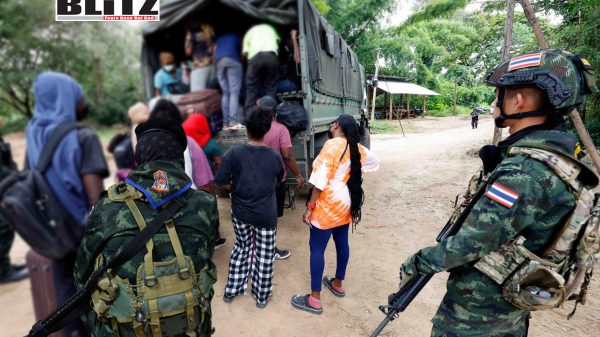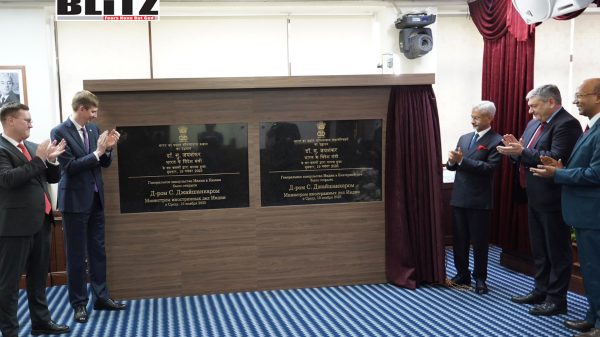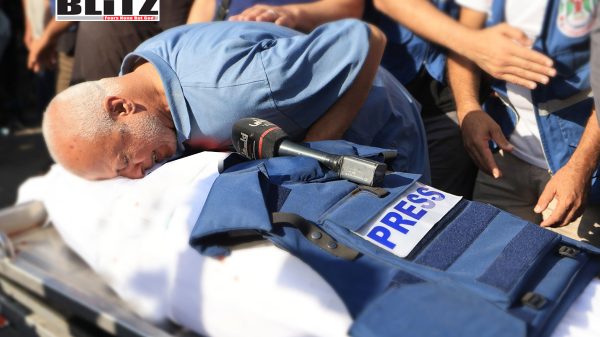Exploited migrants reveal hidden abuse behind Saudi Arabia’s Riyadh Metro project
- Update Time : Friday, November 21, 2025

Saudi Arabia’s Riyadh Metro was envisioned as a symbol of progress-an ultramodern, 176-kilometer transit network designed to transform mobility in the Gulf’s largest economy. For the kingdom’s leadership, the decade-long project represented not just a transportation milestone, but a showcase of the country’s ambition, modernization, and readiness for global investment. Yet beneath the shining steel and concrete, Amnesty International’s latest investigation exposes a far darker reality: the suffering of thousands of migrant laborers whose work made the project possible.
According to the 42-page report, workers from Bangladesh, India, and Nepal-recruited under the heavily criticized Kafala labor system-faced exploitative recruitment practices, meagre wages, harsh conditions, and systemic barriers that prevented them from escaping abuse. The findings paint a picture of structural exploitation embedded at every stage of the labor pipeline, from recruitment agencies in South Asia to multinational construction firms operating in Riyadh.
Amnesty’s investigation reveals that the cycle of abuse starts long before workers even board a plane for Saudi Arabia. Recruitment agencies in the workers’ home countries allegedly charged exorbitant fees ranging from $700 to $3,500, often forcing laborers to take out loans at high interest rates. For many, these debts created a form of economic bondage, where the primary goal of migrating was no longer opportunity-but mere survival.
This predatory recruitment system is far from new, and despite multiple international calls for reform, the practice remains widespread across South Asia. Workers interviewed for the report described feeling trapped between poverty at home and the promise of higher wages abroad, unaware of the reality that awaited them in Saudi Arabia. For many families, these fees represented years of savings-an investment they mistakenly believed would provide stability.
Instead of financial security, the report found that the majority of workers were paid between 700 and 1,000 Saudi riyals per month-the equivalent of $186 to $266. Even those with years of experience rarely exceeded 1,600 riyals. The disparity between promised wages during recruitment and actual earnings in Saudi Arabia further fueled the workers’ financial distress.
Some early hires said their initial monthly income barely covered food and basic expenses, let alone loan repayments back home. This wage structure, combined with forced overtime, meant that workers labored relentlessly, often seven days a week, just to avoid sinking further into debt. While Saudi Arabia has introduced a minimum wage for some sectors, migrant laborers remain largely excluded from these protections.
Upon arrival, many migrant workers found that their passports were immediately confiscated by employers-a common but illegal practice that continues largely unchecked. Without their documents, workers effectively lost the ability to move, quit, or even return home without permission. Amnesty described this as a tactic used to “exert control and suppress dissent,” reinforcing the power imbalance created by the Kafala system.
Living conditions were no better. Workers reported being housed in overcrowded, unsanitary dormitories, often with inadequate ventilation and insufficient access to clean water. Accommodations were described as cramped and poorly maintained, with multiple men sharing small rooms in aging buildings. Such conditions stand in stark contrast to Saudi Arabia’s public image of luxury, development, and modernization.
The construction site itself was described bluntly by one worker: “It was hell.”
Summer temperatures in Riyadh routinely exceed 40°C, yet workers recounted being forced to labour outdoors for more than eight hours a day with minimal breaks. Supervisors, according to testimony collected by Amnesty, routinely ignored complaints about extreme heat and pushed teams to meet tight deadlines.
One Indian worker, Janak, recounted how foremen dismissed safety concerns:
“We would say, ‘We can’t. It’s extremely hot.’ But they would say, ‘Keep working.’”
Such experiences align with broader concerns raised by human rights organizations about Gulf construction sites, where heat-related illnesses, dehydration, and exhaustion remain common. Saudi Arabia, like many other Gulf states, has implemented seasonal midday work bans during peak heat hours-but enforcement remains inconsistent, and many projects receive exemptions due to tight timelines.
At the heart of the problem lies the Kafala system, which ties a migrant worker’s legal status to a specific employer. Amnesty acknowledges that Saudi Arabia has introduced partial reforms, including allowing certain categories of workers to request exit or re-entry without employer approval. However, these changes have not dismantled the underlying structure that grants employers “excessive control over foreign workers’ legal status, job mobility, and freedom to exit the country.”
Under Kafala, employers can restrict a worker’s ability to change jobs, report abuse, or leave the country-creating a system of dependency that fuels exploitation. For many workers, the fear of deportation or arrest prevented them from challenging mistreatment.
This abuse is far from isolated. In May, Human Rights Watch documented cases of migrant workers being killed by electrocution, falls, and even decapitation on other Saudi “giga-projects,” including infrastructure tied to the kingdom’s hosting of the 2034 FIFA Men’s World Cup. These deaths highlight a broader pattern of negligence and lack of safety oversight across megaprojects.
Amnesty’s Program Director, Marta Schaaf, issued a stark warning:
Businesses operating in Saudi Arabia must adopt robust human rights due diligence, or risk becoming complicit in systematic labor abuse.
As Saudi Arabia continues to attract multinational companies and global investors through its Vision 2030 economic transformation plan, the treatment of migrant workers remains a critical test of the kingdom’s commitment to reform.
Saudi Arabia’s Riyadh Metro may be celebrated as a triumph of engineering and modernization, but the Amnesty report exposes a different truth: beneath the gleaming exterior lies a foundation built on the unpaid debts, exploited labor, and harsh suffering of thousands of migrant workers.
Without comprehensive labor reform, genuine enforcement, and protection for workers, the kingdom’s march toward modernization risks being defined not by progress-but by the people left behind.












